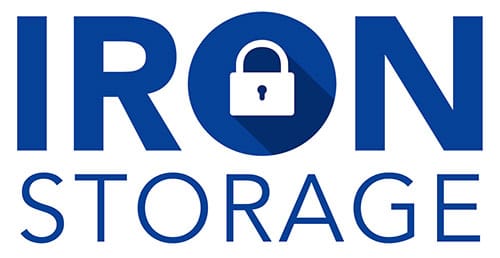Moving to a new home can be an overwhelming experience, but with the right approach and some helpful tips and hacks, you can make the process smoother and less stressful. From packing efficiently to choosing the right moving company and ensuring a smooth move with your appliances, pets, and on moving day, here is a comprehensive guide with moving tips to help you navigate through your relocation journey seamlessly.
Packing Tips for Moving
Packing is a crucial aspect of the moving process and plays a significant role in ensuring a smooth and successful relocation. Whether you are moving across town or to a new state, effective packing can make a world of difference in how organized and stress-free your move turns out to be. To help you navigate the packing process more efficiently, here are some essential tips and strategies to consider:
Start Early and Create a Plan
One of the most important packing tips for moving is to start early. Begin the packing process well in advance to avoid the last-minute rush and reduce stress. Create a packing schedule and plan out which rooms or items you will pack each day leading up to the move. This will help you stay organized and on track with your packing progress.
Declutter and Donate Unwanted Items
While you are going through your belongings in order to pack them, take the opportunity to declutter. Set aside things you no longer need, use, or want. Consider donating, selling, or discarding these unwanted items. Not only will this help reduce the amount of stuff you need to pack, but it will also make unpacking in your new home much easier.
Gather Packing Supplies in Advance
Make sure to collect all the necessary packing supplies before you start packing. This includes sturdy boxes in various sizes, packing tape, bubble wrap, packing paper, markers for labeling, and any specialized containers for fragile or valuable items. Having all your packing supplies on hand will streamline the packing process and prevent unnecessary delays.
Pack Room by Room
When packing your belongings, tackle one room at a time. Start with rooms that are used less frequently and work your way toward high-traffic areas like the kitchen and living room. Pack similar items together and label each box with its contents and the room it belongs in. This will make unpacking much easier and help you stay organized during the move.

Use Proper Packing Techniques
To protect your belongings during transit, it’s important to use proper packing techniques. Wrap fragile items individually in bubble wrap or packing paper and cushion them with soft materials like towels or clothing. Fill empty spaces in boxes with packing material to prevent items from shifting and getting damaged during transport. Seal boxes securely with packing tape to keep contents safe.
Pack Essentials Separately
Before you start packing everything in boxes, set aside a box of essentials that you’ll need immediately upon arrival at your new home. This can include toiletries, a change of clothes, important documents, medications, and any items you may need for the first few days in your new space. Keep this box with you during the move for easy access.
Label Boxes Clearly
Labeling is key to staying organized during the packing and unpacking process. Clearly mark each box with its contents, the room it belongs in, and any special handling instructions. Use colored labels or markers to differentiate boxes from each other and create a master inventory list to keep track of all your belongings.
Pack Heavy Items in Small Boxes
When packing heavy items like books, dishes, or small appliances, it’s best to pack them in smaller boxes. This will make the boxes easier to lift and carry, reducing the risk of injury. Reserve large boxes for lighter items like bedding, pillows, and clothing to keep them manageable during the move.
Take Care of Valuables and Important Documents
Keep valuables, important documents, and sentimental items separate from the rest of your belongings. Pack these items securely in a designated box or bag and keep them with you during the move for safekeeping. Consider investing in a fireproof and waterproof safe for added protection.
How to Choose a Moving Company: Essential Factors to Consider
Choosing the right moving company is a crucial step in ensuring a smooth and successful relocation. Whether you’re moving across town or across the country, entrusting your belongings to a reputable and reliable moving company can make all the difference in the overall moving experience. To help you make an informed decision, here are some essential factors to consider when choosing a moving company:
Research and Read Reviews
Start by doing thorough research on potential moving companies in your area. Look for companies with a good reputation and positive reviews from past customers. Check online review platforms, such as Google Reviews or Yelp, to gain insights into the experiences of previous clients. Pay attention to overall ratings, professionalism, and the company’s ability to handle specific requirements.

Ask for Recommendations
Seek recommendations from friends, family, or colleagues who have recently moved. Their personal experiences can provide valuable insights and help you narrow down your options. Ask about the quality of service received, the efficiency of the moving process, and any potential issues they encountered.
Check Credentials and Insurance Coverage
Before finalizing your choice, verify the credentials and insurance coverage of the moving companies you are considering. Ensure that they are properly licensed and registered with the appropriate authorities. Ask for proof of insurance coverage, including liability and workers’ compensation, to protect yourself from any potential liability or damages that may occur during the moving process.
Get Estimates and Compare Prices
Obtain estimates from multiple moving companies to get a clear understanding of the costs involved. A reputable company will offer a free in-home or virtual survey to assess the scope of your move and provide an accurate estimate. Be cautious of any company that offers significantly lower prices than their competitors, as this could be a red flag for potential issues down the line.
Inquire about Experience and Equipment
When speaking with potential moving companies, inquire about their experience and the types of moves they specialize in. Ask how long they have been in business and if they have any specific expertise in handling certain types of moves, such as long-distance or international relocations. Additionally, inquire about the equipment they use, such as trucks, packing materials, and tools, to ensure that they are well-equipped to handle your specific moving needs.
Understand Services Offered
Different moving companies offer varying levels of service. Some may only provide basic loading, transportation, and unloading services, while others offer full-service options that include packing, unpacking, and even furniture assembly. Determine the level of service you require and make sure the moving company is able to meet your specific needs.
Ask Questions and Address Concerns
During your communication with the moving company, don’t hesitate to ask questions and address any concerns you may have. Inquire about their policies for damages, delays, or changes in the moving date. Ask how they handle customer complaints or issues that may arise during the moving process. Clear communication and transparency are key indicators of a professional and reliable moving company.
Obtain References and Contact Past Customers
To get a more comprehensive understanding of a moving company’s performance, ask for references from past customers. Contact these references and ask about their experience with the company. Inquire about the punctuality, professionalism, and overall satisfaction with the moving services provided. Talking directly to previous customers can provide valuable insights and help you make an informed decision.
Trust Your Instincts
Lastly, trust your instincts when choosing a moving company. If something feels off or you have any doubts about a particular company, it’s best to consider other options. Moving is a significant life event, and you deserve to have peace of mind knowing that your belongings are in trusted hands.
Moving Across Country Tips: How to Make Your Relocation a Success
Moving across the country can be a significant life event that requires careful planning and preparation. Whether you’re moving for a new job, family reasons, or a change of scenery, there are many things to consider before embarking on a long-distance move. To help you make your relocation a success, here are some essential tips for moving across the country:
Plan Ahead
Planning ahead is crucial when it comes to moving across the country. Start by creating a comprehensive moving plan that includes a timeline, a budget, and a checklist of tasks to be completed before the move. Research your new location and create a checklist of things you need to do in advance, such as securing new housing, arranging for utilities, and finding new schools for children.
Consider Shipping or Storing Large Items
When moving across the country, it may be more cost-effective to ship or store large items, such as furniture or vehicles. Consider renting a storage unit at your new location or working with a shipping company to transport these items separately from your other belongings.
Update Your Address and Notify Service Providers
Before you move across the country, make sure to update your address with your bank, credit card companies, and any other service providers. Notify your friends and family of your new address and forward your mail to your new location. This will help ensure that you don’t miss any important mail or payments during the move.
Make Travel Arrangements in Advance
If you are driving to your new location, make travel arrangements in advance. Plan your route, book hotels if necessary, and ensure that your vehicle is in good condition for the long trip. If flying, research flights and book tickets early to secure the best deals.
Take Care of Your Mental and Physical Health
Moving across the country can be a stressful and physically demanding process. Remember to take breaks, stay hydrated, and get plenty of rest during the move. Take care of your mental health by practicing self-care and seeking support from family, friends, or a professional if needed.
Prepare for the Unexpected
Finally, prepare for the unexpected when moving across the country. Have a contingency plan in place in case of delays or issues during the move. Purchase insurance for your belongings and consider purchasing travel insurance for your trip.
Tips on Moving Appliances
- Refrigerator: Allow the refrigerator to settle for at least 24 hours after the move before plugging it in. This prevents potential damage to the compressor and ensures it functions properly.
- Washer and Dryer: Secure the drum of the washer and gas lines of the dryer before moving to prevent damage. Follow manufacturer guidelines for safe transportation.
- Dishwasher: Drain and clean the dishwasher before moving. Secure any detachable parts to avoid loss or damage during transport.
Moving Day Tips
- Early Start: Begin your moving day early to allow sufficient time for packing, loading, and transportation.
- Have a Plan: Organize tasks, designate responsibilities, and create a timeline for moving day activities.
- Stay Hydrated and Energized: Stay hydrated and have snacks on hand to keep energy levels up throughout the day.
- Check the Inventory: Verify that all items are loaded onto the moving truck and cross-check with your inventory list before departing.
Tips for Moving with a Pet
- Update ID Tags: Ensure your pet’s ID tags are up to date with your new address and contact information.
- Create a Safe Space: Set up a designated area in your new home where your pet can feel secure and comfortable.
- Maintain Routine: Stick to your pet’s routine as much as possible to reduce stress and anxiety during the move.
- Pet Transport: If flying or driving long distances, provide ample food, water, and breaks for your pet’s comfort and well-being.
Should You Tip the Movers and How Much?
- Tipping Etiquette: While tipping is not mandatory, it is customary to tip movers for their hard work and service.
- Amount: A common practice is to tip each mover between $20 to $50, depending on the quality of service and overall satisfaction.
Moving to a new home is a significant life event, and adequate planning and preparation can make a world of difference. By following these tips and hacks, you can streamline your moving process, reduce stress, and ensure a successful and smooth transition to your new abode.
Author
-
Arthur Waldmann is the Marketing Director at Iron Storage and a thorough researcher of the self storage industry. Feel free to send any questions his way.
View all posts







